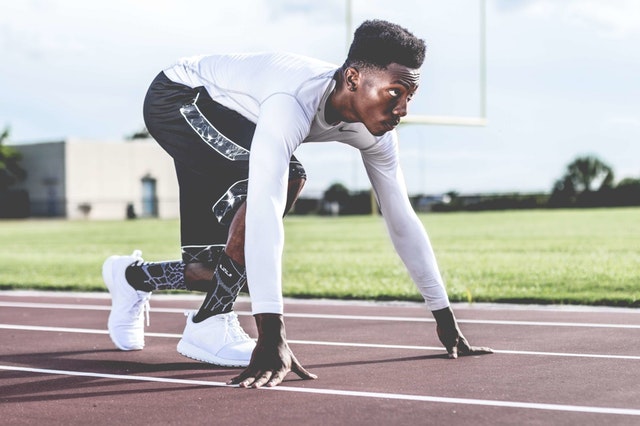When did you last work on your mental sports performance training, if ever?
Did you know?
Mental training is just as important as physical training! Top athletes such as Michael Jordan Tiger Woods, Mary Lou Retton, among others, have used mental training techniques to improve their sports performance.
How does mental sports performance training work?
Once an athlete reaches a certain level of skill and experience, the mental part of their sport makes the difference between average and great athletic performance. Mental obstacles may happen due to a number of factors. Some of these are pain, injury, poor performance, multiple game losses, the yips, or issues with team members and coaches.
These obstacles often show up as anxiety, low confidence, inability to get into the flow state, and low motivation. As a result, unhelpful mental states take an athlete down a negative path. This usually impacts their sports performance. To prevent these obstacles, there are many tools and methods available to the athlete.
Sport Psychology
Trainers and coaches focus on the athlete’s physical skills and abilities. Sport psychologists focus on the athlete’s mind. Thus they help the athlete improve performance, overcome obstacles, cope with competition pressure, play to their potential, and reach their goals. They use techniques such as visualization, positive self-talk, relaxation, goal setting and emotional regulation.
Sports Hypnosis
Hypnosis is a type of mental training. Sports hypnosis refers to the use of hypnosis for improving athletic performance. Sports hypnosis is used by coaches, psychologists, and elite and professional athletes. Michael Jordan, Tiger Woods, and Rod Carew have all used hypnosis for their sports. Phil Jackson used it with the Chicago Bulls and L.A. Lakers while coaching these championship teams.
An athlete’s mental state during training and competition impacts their performance. This is one important area where hypnosis can help. It helps the athlete remain calm under pressure, and maintain a relaxed mental state (i.e. the Flow State).
Similar to sport psychology, sports hypnosis can help athletes enhance performance, overcome mental obstacles, cope with pressure, and reach their goals. Like sport psychology, sports hypnosis may incorporate visualization, positive self-talk, relaxation, goal setting, positive self-talk and emotional regulation. Athletes are sometimes taught self-hypnosis so they can use it on their own.
Mental Imagery
Mental imagery refers to using all of the senses – seeing, feeling, hearing, tasting and smelling – to imagine a real life scenario in the mind. This helps an athlete rehearse athletic performance under specific situations prior to it actually occurring.
With this, the athlete overcomes and problem solves situations found to be challenging in real life. It allows them to live out the real life scenario in a way that they want to in advance of it actually happening. Mental imagery may be used in combination with sports hypnosis.
Meditation
It has been found that if athletes practice meditation for only a few minutes per day, they may be better prepared to manage the physical and mental demands of their sport. Some of the many benefits of a regular meditation practice for the athlete include stress reduction, improved sleep, and increased endurance. Sport psychologists and sports hypnosis practitioners sometimes incorporate meditation into their work with athlete clients.
How can improving mental skills help an athlete?
Athletes benefit from mental training to improve their sports performance. Here are some ways that it helps them:
- Choose and maintain a positive attitude
- Be highly self-motivated
- Set attainable goals
- Deal effectively with other people
- Incorporate positive self-talk into their regime
- Use mental imagery to enhance their performance
- Effectively manage anxiety
- Manage their emotions
- Improve concentration
- Stay focused
No matter where you are as an athlete or in your sport, there are many tools available for improving the mental side of your sports performance.
Want to make a positive change? There’s no better time than NOW!
Lynne,
Your Mindset Mental Coach

